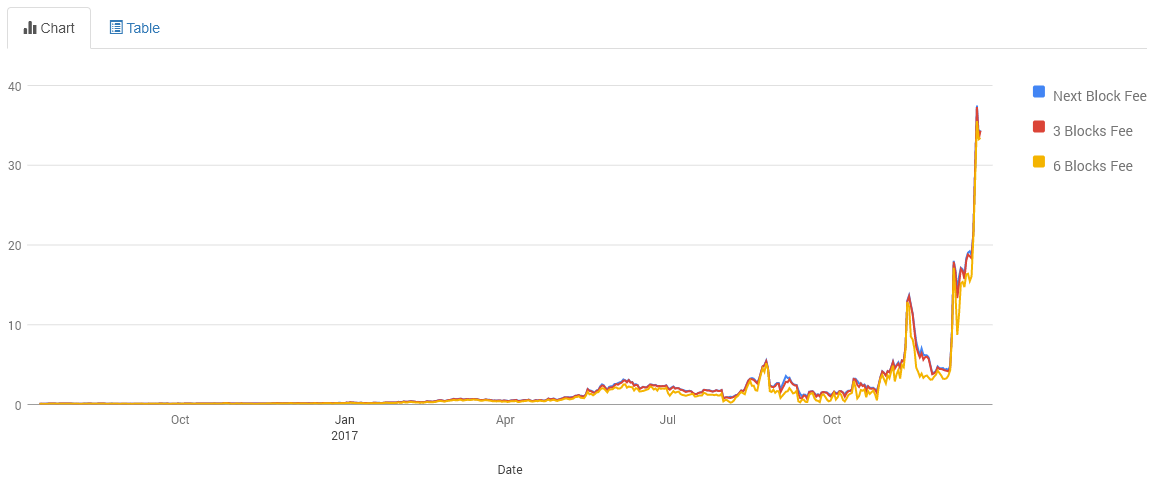BitPay, the bitcoin, and blockchain specialist payments company today said that due to Bitcoin miner fees averaging now more than $30 per transaction, the company is now requiring a new invoice minimum payment amount of $100 on all BitPay invoices.
This change does not affect person to person payments in the BitPay wallet, only payments to BitPay merchants and bitcoin-to-dollar loads for the BitPay Card. This invoice minimum change also means that, for now, new BitPay Cards are temporarily unavailable for order.
The team will be working in the coming months to implement Segregated Witness (Segwit) in various parts of the platform. Segregated Witness reduces the size of bitcoin transactions, allowing for an average bitcoin miner fee reduction of over 40%.
A big difference since March 2017, when BitPay announced it would be raising the minimum invoice payment amount to $1.00.
Why BitPay is raising the invoice minimum to $100
Bitcoin miner fees are the costs to purchasers for sending Bitcoin transactions. BitPay also pays these costs as an operational cost for sweeping payments received to BitPay invoices. With current bitcoin network conditions, transactions sent without large miner fees are at high risk of significant payment delays or payment failures. Bitcoin payments under $100 are quickly becoming impractical for users to send and for BitPay to process.
What this means for BitPay merchants
- If a customer attempts to submit an order smaller than $100 in USD value, the BitPay API will now return an error message to the system preventing invoice creation. No payment will be possible. The system will receive the following response from BitPay: { error: ‘Invoice price must be at least $100 USD’ }
- If a customer needs to pay for an item less than $100, they will need to use an alternative payment method.
- When testing payments smaller than $100, developers should use BitPay’s testnet environment and a testnet bitcoin wallet.
What this means for BitPay cardholders
- For now, users will be unable to make a bitcoin-to-dollar load with any amount smaller than $100 USD in bitcoin. If a user needs to load their card, it is recommended to load larger amounts in advance of planned purchases.
- For US-based cardholders, users can also continue to make cash loads or direct deposits to their BitPay Card for amounts smaller than $100. International cardholders will continue to have access to other load methods such as Visa Direct.
What’s going to happen to smaller bitcoin payments?
The BitPay team says they are observing the Bitcoin network conditions constantly. If network capacity increases or miner fee levels go down, the company will evaluate lowering its invoice minimum again.
Further, going back to what BitPay announced earlier in the week, the company is working quickly to add support for a Bitcoin Cash (BCH) payment option on all BitPay invoices. Bitcoin Cash is a modified fork of Bitcoin which will allow purchasers to send payments with lower miner fees. Bitcoin Cash payments will allow BitPay to re-enable payments as small as $1 or smaller.

BitPay Update: 12/24 – The BitPay team said it continues to monitor network conditions but it has re-enabled merchant invoices and debit card BTC to USD loads for $5 or above. Also, the BitPay Card is again available.
BitPay made the following comment:
“Our BitPay payment minimum changes are based in large part on the miner fee costs of sending and refunding mistaken payments which many bitcoin wallets make. Our recent Payment Protocol improvements to the BitPay payment experience have effectively eliminated these payment mistakes. This has allowed us to make $5 or greater invoices available once again.”
“Many invoice payments under $100 may still be uneconomical for bitcoin purchasers due to high bitcoin network fees. However, they again have the option to send these smaller payments if they choose.”
“We do not have plans for further immediate changes to the minimum BitPay invoice amount. We will provide as much advance notice as possible to our users in case this changes.”






















